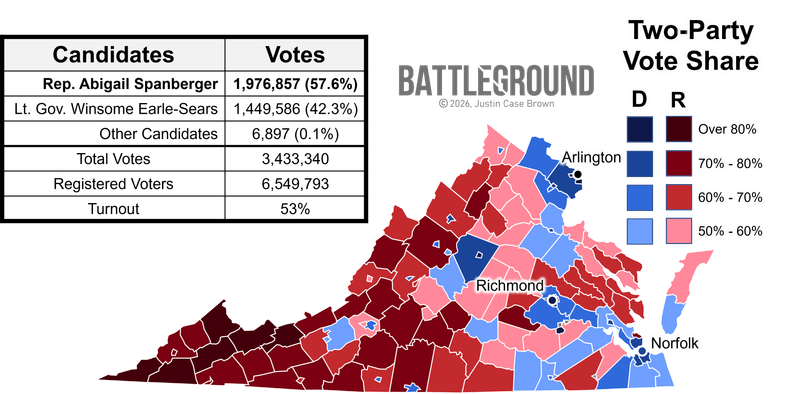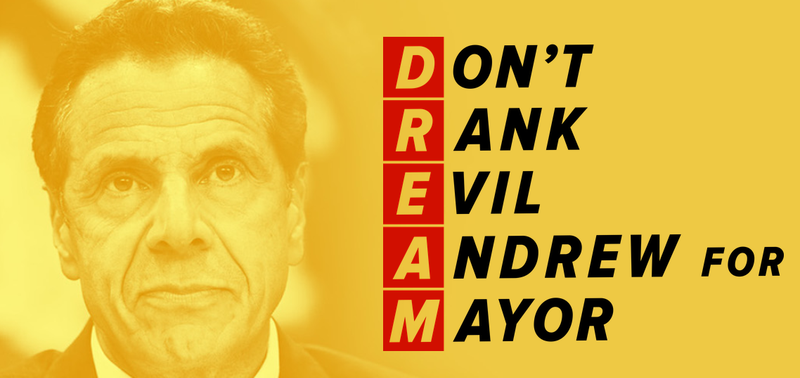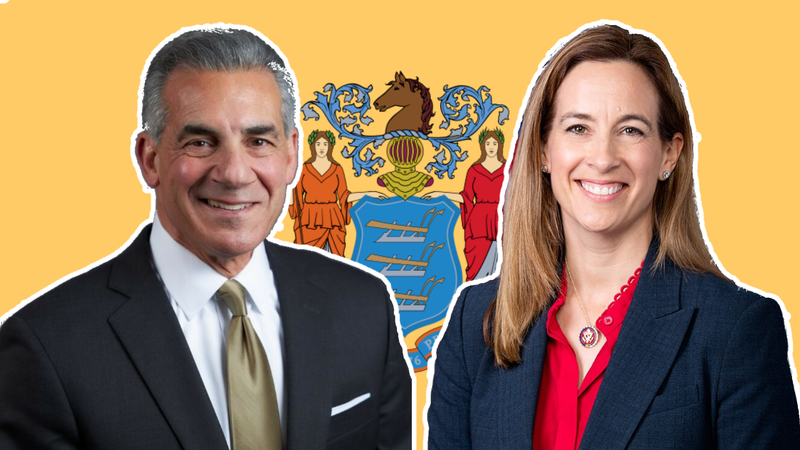🔮 New Hampshire's Gubernatorial Race May Shape Our 2024 Presidential Nominees
As an early primary state, local New Hampshire politics could have an outsized effect on the eventual 2024 presidential matchup.

New Hampshire is a small state with a large impact on national politics. Not only is it regularly a swing state in presidential elections, its status as an early primary state means that voters here have strong influence over each party’s presidential nominee. Media outlets are already descending on New Hampshire to gauge voters’ interest in the current slate of Republican presidential candidates and the governor just threw gasoline onto the media fire with his recent announcement.
New Hampshire Gov. Chris Sununu (R) is not seeking re-election in 2024, creating an opening in a state that could vote in either direction. The race is already hot, with candidates jump-starting their campaigns more than a year out from Election Day. While the Democratic primary is a fiercely local competition, the state’s Republican gubernatorial primary provides an insightful sneak peek into how New Hampshire’s voters may vote in their presidential primary. Below, I’ve matched each of New Hampshire’s gubernatorial candidates with a presidential candidate based on their personalities and political ideologies. Keep an eye on how this race develops as it may provide us with the tea leaves to predict the direction of the 2024 Republican presidential primary.
Declared Candidates

“I’m running for Governor because New Hampshire is one election away from becoming Massachusetts — from becoming something we are not.”
Former Sen. Kelly Ayotte entered New Hampshire’s gubernatorial race with her best Ron DeSantis impression. Much like the presidential candidate, she launched her campaign by distinguishing her home state from its liberal counterpart. In her announcement speech she implied that Massachusetts was unsafe, overrun with drug dealers and violent criminals. She’s continued to beat the same drum, referencing New Hampshire’s high rate of fentanyl deaths with conservative rhetoric.
Ayotte benefits from her tenure as the state’s US senator from 2011 to 2017. During her time in the Senate, she fashioned herself as a mainstream conservative that shared only tepid support for Trump. (She said she would vote for Donald Trump but refused to formally endorse him in the 2016 election.) Again much like DeSantis, Ayotte is likely to benefit from her image as an experienced politician who knows how to get things done. She also may pick up some voters who are ready to ditch the party’s Trump-related baggage. The lingering question is if she will continue following in DeSantis’s footsteps by leaning into the fascistic tendencies of the far-right in her return to campaigning.

Former NH Senate President Chuck Morse is the Chris Christie of this race. Despite serving in the state senate for many years, Morse has never won a primary for higher office, most recently losing the nomination in the state’s 2022 US Senate race. During his 2022 campaign he followed the path of moderate Republicans: he’s a pro-life candidate that doesn’t support federal restrictions on abortion, he wrung his hands about immigration and border security, and refused to parrot the lie that Donald Trump won the 2020 election. His role in the 2024 race will likely be similar to Christie’s (assuming he doesn’t shift and cater to the far-right) as the voice that speaks truth to power from within the party. In most Republican states, this approach would be dead on arrival. But retiring Gov. Sununu was known to be a similar voice for Republicans, regularly critiquing Trump’s more egregious gaffes. If Morse can manage to make it through the primary as a moderate, he’d likely be a serious contender in the general election.
Prospective Candidates
(The following candidates have expressed interest and/or an intent to run but have not officially announced their candidacy.)

Frank Edelblut is our quintessential ‘outsider’ candidate that seeks to run government like a private business. While he has served as the head of New Hampshire’s Department of Education since 2017, he has the least experience in elected office of the current pool of candidates. (He served in the NH State House for a single two-year term before leading the state’s education department.) While Edelblut has yet to declare his candidacy officially, he’s been quoted saying that he’s seriously considering a run for governor and expects to make a decision in the coming weeks.
During his previous run for governor in 2016, Edelblut ran a campaign that mirrors Ramaswamy’s in how he spoke about solving political problems like a businessman. He campaigned to flip New Hampshire’s aging population from a “liability” to “an asset” by pitching ways the state could court new industries that rely on elderly consumers. He also came out against any climate change policies that would “limit our opportunities for energy” and create negative economic outcomes for business. Edelblut came surprisingly close to beating Sununu in the 2016 primary; he could be a dark horse candidate yet again should he choose to run.
“I am the only candidate on this stage that’s not a career politician. I am a proven job creator. I have fought for fiscally conservative issues for my whole life. I have also fought for conservative values and I look forward to having a conversation with you tonight.”
-Frank Edelblut’s opening statement in NH’s 2016 Republican gubernatorial debate

NH House Representative Robert “Bob” Burns is currently mulling a run for higher office and has indicated that he is willing to run for either the governorship or a US House seat. Burns ran for New Hampshire’s 2nd US House seat in the 2022 election and won the Republican primary after receiving Donald Trump’s endorsement. If Burns runs for governor he will easily be the “Trumpiest” candidate on the ballot. During his recent congressional campaign, he followed Trump’s far-right playbook by advocating for ending our economic relationship with China, complaining about pandemic mitigation measures and raging against critical race theory. Democrats described him as “the only pro-Trump, unapologetic conservative” in the local congressional race as a way to turn out voters against him in the general election. The tactic ultimately worked: while Burns managed to beat out six other Republicans in the primary, he ultimately lost to Democratic incumbent Rep. Annie Kuster by an 11-point margin. Expect a similar dynamic to play out if Burns throws his hat into the governor’s race: Trump has never won New Hampshire and the state’s voters have consistently rejected far-right, “Trumpy” candidates in general elections.




